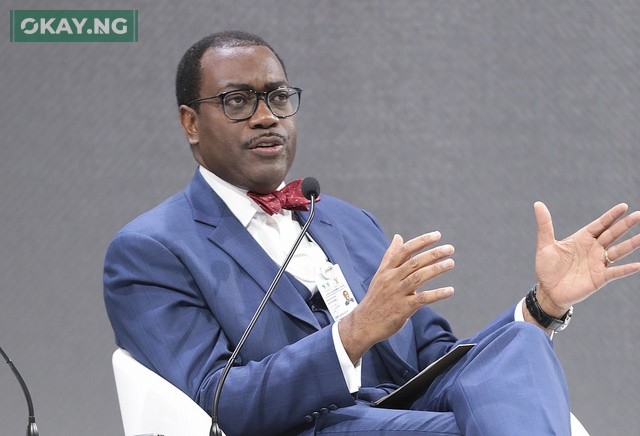In a powerful call to action, African Development Bank (AfDB) President Dr. Akinwumi Adesina has declared that the continent must decisively end its reliance on the export of raw materials to truly ignite economic growth and prosperity. Through a compelling post on his official X (formerly Twitter) page, Dr. Adesina asserted that this long-standing practice is a “door to poverty,” while the strategic export of value-added products represents the “highway to wealth” for the continent.
Dr. Adesina’s impassioned statement resonates deeply within the context of Africa’s historical economic trajectory. For decades, many African nations have primarily served as sources of raw materials for industries in Europe, the Americas, and Asia. These resources are then transformed into finished goods, often re-imported into Africa at significantly higher costs. This economic structure has perpetuated a cycle of limited industrialization and constrained economic potential across the continent.
“Africa must end the exports of its raw materials. The export of raw materials is the door to poverty. The export of value-added products is the highway to wealth. And Africa is tired of being poor,” Dr. Adesina emphatically stated. His words underscore a growing sentiment among African leaders and economists that a fundamental shift in economic strategy is imperative for sustainable development.
This is not the first time Dr. Adesina has championed this crucial transition. In 2023, speaking in Lagos, he specifically challenged Nigeria to take a leading role in revitalizing its industrial sector to become a true economic powerhouse on the continent. He drew a stark comparison between Nigeria and Southeast Asian nations that have successfully transformed their economies through strategic industrialization.
“Malaysia and Vietnam have used aggressive horizontal and vertical diversification of industrial production to move from low-value to high-value market products,” Dr. Adesina pointed out. “The result is reflected in the comparative wealth of the three countries. While the per capita export value is $7,100 for Malaysia and $3,600 for Vietnam, it is only $160 for Nigeria.” This data vividly illustrates the significant economic benefits of moving up the value chain.
Read Also: AfDB President Blasts Banks: “System Not Designed for Young Entrepreneurs”
Dr. Adesina’s analysis goes beyond mere economic theory; it taps into a deep-seated aspiration for a more prosperous future for Nigeria and the African continent as a whole. “Nigeria should never be a poor country, and Nigerians are tired of being poor. Nigeria must move decisively from managing poverty to managing wealth,” he asserted, highlighting the urgent need for transformative action.
He further emphasized the immense potential that industrial manufacturing holds for Nigeria, suggesting it could generate ten times the revenue currently derived from oil dependence. To realize this potential, Dr. Adesina stressed the critical need for the implementation of “the right policies, investments, infrastructure, logistics, and financing frameworks, steered by a highly skilled, dynamic, and youthful workforce.”
However, Dr. Adesina also acknowledged a significant hurdle: the gap between policy formulation and effective implementation. He specifically called on the Nigerian government to prioritize the transformation of its ports and the streamlining of administrative processes to enhance efficiency. This recognition of the practical challenges on the ground adds a layer of realism and underscores the comprehensive effort required to achieve the desired economic transformation.
The AfDB President’s persistent advocacy for a shift towards value-added exports reflects a broader understanding that Africa’s vast natural resources can be a catalyst for genuine wealth creation if processed and manufactured within the continent. This approach not only increases export revenues but also creates jobs, fosters technological innovation, and strengthens local economies.
The challenge now lies in translating this compelling vision into concrete action across the African continent. It requires a concerted effort from governments, the private sector, and regional bodies to create an enabling environment for industrialization, attract investment in manufacturing, and develop the necessary skills and infrastructure. Dr. Adesina’s powerful message serves as a timely reminder of the urgent need for Africa to chart a new course towards sustainable and inclusive economic prosperity by harnessing the full potential of its resources through value addition.













